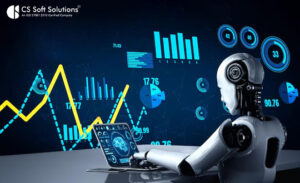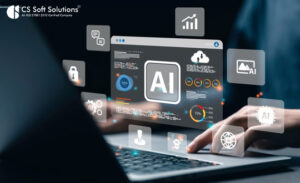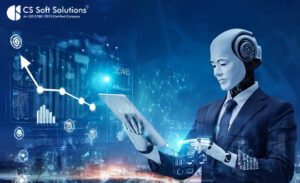The rise of artificial intelligence (AI) is dramatically transforming industries and empowering humanity like never before. AI, with its remarkable ability to mimic human intelligence and perform complex tasks, is reshaping the way we live, work, and interact. This revolutionary technology has found applications in various sectors, revolutionizing healthcare with personalized treatment plans and faster diagnostics, enhancing financial services with fraud detection and efficient customer support, streamlining manufacturing processes through automation and improved productivity, optimizing transportation systems with autonomous vehicles and smart traffic management, and even revolutionizing customer service with AI powered chatbots and virtual assistants. The impact of AI is far-reaching, extending to every aspect of our lives.
However, with great power comes great responsibility. As AI continues to advance, ethical considerations and challenges must be addressed. Issues such as bias in algorithms, data privacy, job displacement, and social inequality need to be carefully examined. Striking the right balance between innovation and responsible development is essential to ensure that AI benefits society as a whole and does not perpetuate harm.
Looking to the future, AI holds immense potential. Trends such as explainable AI, which aims to make AI decision-making transparent and understandable, are gaining traction. Edge computing, bringing AI processing closer to the data source, is enabling real-time analysis and decision-making. Moreover, AI for social good initiatives are leveraging AI to address pressing global challenges, including climate change, healthcare accessibility, and poverty. The future promises a fusion of technology and human potential, where AI plays a pivotal role in creating a more inclusive and prosperous world.
In conclusion, the rise of artificial intelligence is transforming industries, revolutionizing processes, and empowering humanity. While embracing the immense benefits and
opportunities AI offers, it is crucial to address the ethical implications, foster responsible development, and ensure that AI serves the greater good. By striking a harmonious balance between AI and human values, we can navigate this transformative era and create a future where technology and human potential merge to bring about a better tomorrow.
Points:
- Machine Learning and Deep Learning – Machine learning and deep learning are subsets of artificial intelligence that enable machines to learn from data and make predictions without explicit programming. Machine learning algorithms analyze patterns and make decisions, while deep learning algorithms simulate the workings of the human brain through artificial neural networks, allowing for more complex tasks like image and speech recognition.
- Advancements in Natural Language Processing – Natural Language Processing (NLP) has made significant strides in understanding and processing human language. NLP algorithms can perform tasks like machine translation, sentiment analysis, and virtual assistants, enabling more accurate and efficient communication between humans and machines.
- Automation and Efficiency – Automation powered by AI is transforming industries by streamlining processes and increasing efficiency. With AI-driven automation, tasks that were once time-consuming and manual can now be completed rapidly and accurately, reducing costs, improving productivity, and freeing up human resources for more complex and strategic work.
- The Human-AI Collaboration – The collaboration between humans and AI is becoming increasingly important. Rather than replacing humans, AI technologies are augmenting human capabilities. By leveraging AI’s ability to process vast amounts of data and provide insights, humans can make more informed decisions, solve complex problems, and achieve greater outcomes. This collaboration allows for a symbiotic relationship where humans and AI work together for optimal results.









